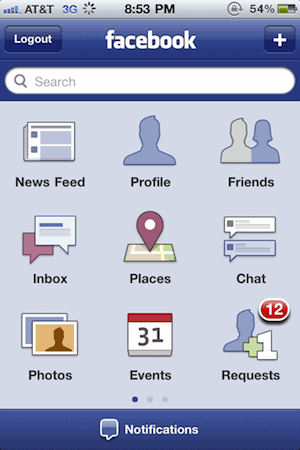When was the last time you went through a period of stress? Can you remember the way your body reacted? Chances are you didn't feel quite like yourself. Health experts say that stress can come with some pretty surprising symptoms-from forgetfulness to nausea to skin rashes. Is your body sending you an S.O.S. that you shouldn't ignore? Read on to find out if stress is taking a toll on you-and what you can do to reverse the effects.
1. Tweaked Muscles
The pain in your neck that you attributed to long hours at the computer could actually be a symptom of stress. "Stress definitely affects our musculoskeletal system, resulting in tight, contracting muscles and/or spasms in muscles," explains Elizabeth Lombardo, PhD, MS, PT, a psychologist and physical therapist in Wexford, Pennsylvania, and author of A Happy You: Your Ultimate Prescription for Happiness. "It gets us ready for fight-or-flight, although unlike our cavewomen ancestors, we don't actually need our bodies to react like this." If you're experiencing what you believe to be stress-related muscle symptoms, try this exercise: Take 5 to 10 deep breaths and focus on relaxing the tense area of your body, says Dr. Lombardo. For the neck, try gentle neck rolls or enlist your husband to give you a quick shoulder rub.
2. Eye Twitching
Have you ever had an eye twitch? The often temporary condition can be annoying and worrisome, and for some, can be triggered by stress. "This condition is known as blepharospasm," explains Debbie Mandel, MA, a stress and wellness expert and author of Addicted to Stress: A Woman's 7-Step Program to Reclaim Joy and Spontaneity in Life. "Closing your eyes and visualizing your happiest place on earth will help." Also, avoid stress-related eye issues by giving your peepers a break now and then. "If your eyes get stressed from detailed work at the computer, 'stretch' them every 20 minutes by looking out the window at a larger landscape," suggests Mandel. "If you have no view, close your eyes and imagine a panorama."
3. Ragged Cuticles
Do you have ragged, unkempt cuticles or nails? Their condition could be the result of a stress-induced nervous habit. "Nervous habits like nail-biting are how we channel our stress by distracting ourselves with what is known as oral satisfaction," says Mandel, adding that picking nails and cuticles is also a common way for women to deal with feelings of stress and anxiety. If you take stress out on your hands, consider keeping a stress ball in your desk drawer-something you can squeeze or knead when on the phone with a difficult client, for instance. This helps "squeeze the stress out of your body," says Mandel.
4. Cavities
We all know that slacking off on dental hygiene is the first way to get cavities, but stress can also be a culprit, say experts, especially when you're grinding your teeth at night or during the day. Mandel explains teeth grinding, which many women do, as "chewing over the day's stressors." The problem, however, is that this bad habit can erode dental work, damaging your teeth and making them more susceptible to cavities. Mandel suggests redirecting your anxiety to pen and paper. "Set aside time to write down your problems to see them objectively in black and white, and then jot down some solutions," she says. But, she adds, "If teeth grinding is severe, see a dentist about getting a mouth guard."
5. Rashes
It sounds strange, but your skin can be a pretty good barometer of your stress level. "Stress can cause a rash, usually raised red spots or hives on the stomach, back, arms and face," notes Dr. Lombardo. "While we don't know why it occurs, some experts believe that it has to do with the adverse effects of stress on the immune system-histamine is released, causing these itchy bumps." Deep breathing may keep rashes at bay, or from developing in the first place. So, next time you feel your stress level rising, place your hand right above your belly button. "Every time you inhale, you want your hand to rise; with each exhale, it lowers. Take 5 to 10 deep breaths periodically throughout the day."
6. Nausea
Have you ever been worried about a loved one's (or your own) health condition, Googled it and suddenly felt nauseated? "Stress can upset the stomach, and nausea can be a byproduct of worry," says Mandel, who warns against playing "Google MD." Worrying about your health or a loved one's is normal, but obsessing about it is unhealthy. If your anxiety is causing nausea, try this trick that Mandel swears by: Let tepid water run over your fingers; it's believed to keep nausea at bay.
7. Sleepiness
Feeling sluggish? It could be stress. "Stress hormones cause your body to surge with adrenaline and then crash into sleepiness," says Mandel. "Stress will also ruin the quality of your sleep, so you wake up tired and irritable." What to do? Go to bed earlier, says Mandel, or catch a 30-minute nap midday, and don't feel guilty about doing so. "There is great productivity in rest," she says. "You come back more focused!"
8. Forgetfulness
Ask any woman who is trying to do it all and she'll admit to a few slip-ups in the memory department (forgotten appointments, lost keys, missing cell phone-ring a bell?). "Research shows that chronic stress can literally shrink the size of the hippocampus, which is responsible for some memories," says Dr. Lombardo. "Luckily, its size will go back to normal once your stress level reduces." Want to keep your brain functioning at an optimal level? Combat the first signs of stress with exercise, she says: "Go for a walk, run up a flight of stairs or dance around to the newest Black Eyed Peas tune." Exercise, she adds, keeps your brain sharp and may even help you be more prepared for future stressful moments.
9. Confusion
You can't decide what to make for dinner, what to wear to work or which exit to take off the freeway. Stress causes distraction and lack of focus, says Mandel. "Stress hormones lodge longest in the brain," she says. To restore focus, take a walk, she says. "Move the stress out of your body by exercising large muscle groups like the legs. You will gain clarity. Walk out in the light and you'll reset your natural rhythm while you move out the stress. Sunlight helps the body release serotonin to improve mood, and vitamin D helps you improve your immune system-a great perk."
























